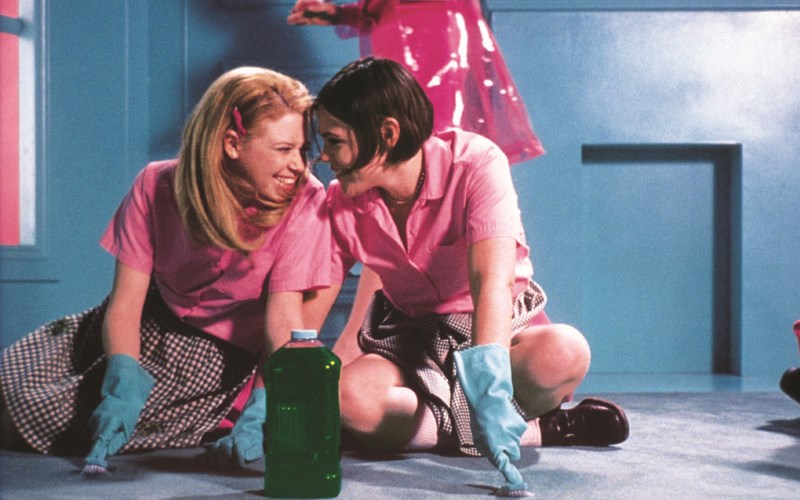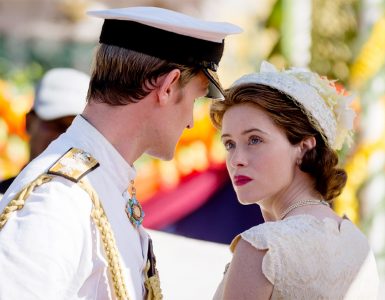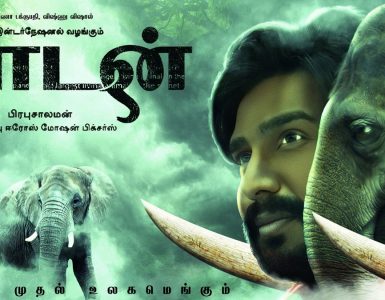Narrowing down the 15 best motion pictures in any kind is extreme, yet for lesbian movies, you need in any case a reductive inquiry: What is a lesbian film? What, truth be told, is a lesbian? (In any case, that is an alternate piece). Must the film center essentially around a gay storyline, or would it be able to highlight solid lesbian characters accomplishing something completely not the same as being lesbians? Is subtext enough? What amount of cinephile rage will descend upon us for the nonappearance of a specific late Oscar chosen one?
Eventually, the best lesbian movies honor the customs of the eccentric film in the entirety of its greatness: Strong ladies, high diversion worth, and striking visuals rule. Time and again, lesbian characters are either ugly man-haters or utilized for sensation.
These motion pictures recover the entirety of that; they’re the films you will see played on a circle in the club, or at an underground housetop film night. Some won honors; others arrived at religion status long after their deliveries. It’s top notch as beautiful and differed as the strange network itself.
Right away, here are the 15 best lesbian movies ever constructed:
15. “Untouchable” (Dee Rees, 2011)
Each movie producer gets her break at a story about growing up that reflects their own, and those accounts take on expanding centrality when coming from infrequently observed points of view. Murmuring with the power of quelled sexuality at long last breaking free, “Outsider” follows young Alike (Adepero Oduye) as she grasps her eccentricity and manly sex articulation.
The camera essentially hurts as Alike changes out of her baseball cap and shirt on the train home to Brooklyn, wearing a girly sweater to quiet her folks’ doubts (Kim Wayans and Charles Parnell). We dissolve close by Alike as she illuminates with the principal shivers of adoration, seeing herself unexpectedly through according to Bina (Aasha Davis).
Cinematographer Bradford Young (“Arrival”) films Alike’s first evenings out at the club in rich, soaked tones. The film beats with the cadence of first love and the expense of self-revelation.
14.”D.E.B.S.” (Angela Robinson, 2004)
DEBS, Sara Foster, Meagan Good, Devon Aoki, Jill Ritchie, 2004, (c) Samuel Goldwyn
An astute activity spoof that was a lot more intelligent than its standard showcasing effort comprehended, “D.E.B.S.” resembles an eccentric “Charlie’s Angels” set at the school from “However I’m a Cheerleader,” with more extensive business offer.
An illegal romantic tale between a youngster spy and an evil yet hot global precious stone criminal, the film includes early exhibitions by Jimmi Simpson (“Westworld”) and Jordana Brewster (“The Fast and the Furious”). Set at an underground government institute for high schooler super covert operatives, the D.E.B.S. are picked by their answers addresses covered up in a SAT-like test.
It’s moronically fun, pleasantly sentimental, and much more rebellious than it gets acknowledgment for.
IMDB: 5.3/10
13. “Radiant Creatures” (Peter Jackson, 1994)
Magnificent animals melanie lynskey kate winslet
For the endowment of Melanie Lynskey and Kate Winslet together we should express gratitude toward Peter Jackson, regardless of whether they don’t head out into the nightfall. In view of a genuine story of an infamous 1950s New Zealand murder case, Jackson comprehended something simply recently known to lesbians: The succulent account capability of adolescent lesbian fixation gone appallingly amiss.
In her presentation, Lynskey is magnificently unhinged as Pauline Parker, an untouchable who builds up a serious fellowship with the flawless and affluent Juliet Hulme, a similarly great youthful Kate Winslet. Dream — that need of strange immaturity that frequently waits in adulthood — turns out to be progressively genuine for the two companions, who retreat further into their shared daydreams.
Like all insane lesbian connections, it closes in misfortune.
12.”The Handmaiden” (Park Chan-wook, 2016)
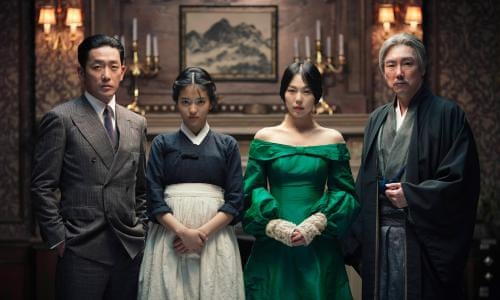
At the point when South Korean auteur Park Chan-wook picked as source material the lesbian chronicled fiction novel “Fingersmith,” by Welsh creator Sarah Waters, it appeared to be a little out of fantasy land. However, changing the setting from Victorian England to Japanese-involved Korea was a splendid move, and one that imbued this chilly secret about a swindler and the two ladies he entangles in his plot with untold magnificence.
Chan-wook raises the book’s tacky components to fetishistic boundaries, turning out a sensual spine chiller just as beautiful as it is evil. Min-hee Kim is tidy and appealing as Lady Hideko, never completely dropping the exterior even as she succumbs to her energetic handmaiden, Sook-Hee (Tae-ri Kim), who is entrusted with conning her out of her legacy. As the two ladies manage with the hand life has given them, they find energy in the shared battle.
IMDB: 8.1/10
11.”Set It Off” (F. Gary Gray, 1996)

In the extraordinary convention of “all day” or “Thelma and Louise,” however with three of the most mainstream dark entertainers of the time, “Set It Off” stays unparalleled today. Featuring Vivica A. Fox, Jada Pinkett Smith, Queen Latifah, and Kimberly Elise as four companions who become burglars, each for their own reasons.
While lesbians guaranteed “Thelma and Louise” as their own from subtext alone, “Set It Off” gave crowds the Queen Latifah they had always wanted. Cleo was an arrogant, noisy, strutting butch. Furthermore, she gets laid. At long last, an anecdote about boss ladies battling the framework that held them down, and nobody could state anybody was adding a lot to it by calling it strange.
“Set It Off” murdered in the cinematic world, earning $41 million on a careful spending plan of $9 million. As the achievement of “Concealed Figures” appeared, crowds are clamoring for dark female stories. This is one redo nobody would address.
IMDB: 6.9/10
Also Read- Honest Thief Movie Review: Never Steal A Man’s Second Chance
10. “The Misandrists” (Bruce LaBruce, 2017)
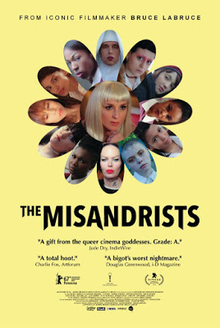
The time is now for the dad of queercore to acknowledge lesbians are provocative, as well. Up ’til now unreleased, queers of all stripes will undoubtedly wriggle over “The Misandrists,” which played the Berlin Film Festival a year ago.
At the point when Isolde (Kita Updike), a little youngster living on a lesbian rebel collective, goes over a harmed protester, she shrouds him in the storm cellar, despite the fact that Big Mother (Susanne Schasse) and her aggressor framework of women’s activist instructors have an exacting approach of no young men permitted.
Everything is a dining experience for the eyes: The young ladies really look strange in a flavorfully European manner, trickling with sex request in their student outfits, and the educators wear over the top nuns’ propensities as masks. Indeed, even as LaBruce extols this women’s activist ideal world, as Isolde’s insider facts are uncovered, the film turns into a mind boggling investigate on essentialist perspectives on sexual orientation.
Any individual who has ever longed for joining a lesbian nonconformist religion is compelled to acknowledge “The Misandrists” as LaBruce’s own blessing, kindness of the goddess of film.
IMDB: 5.1/10
9. “Desert Hearts” (Donna Deitch, 1986)

As of late praising its 30th commemoration with a lovely 35mm screenings at the Museum of Modern Art, this notable exemplary was the first run through lesbians had the chance to sit in a cinema, with popcorn, and see a little bit of themselves on the cinema.
Set in the 1950’s and in Reno, Nevada, it follows English teacher Vivian Bell (Helen Shaver) as she anticipates a separation and starts another life. Closed up and delicate, Vivian is quickly attracted to sparkler Cay Rivvers (Patricia Charbonneau), a youthful stone carver who isn’t hesitant to follow what she needs.
“Desert Hearts” was the principal lesbian film that didn’t include an adoration triangle with a man, or end in misfortune. With clearing visuals and various complex female characters, the backbone of this noteworthy film can’t be denied.
IMDB: 7/10
8. “The Watermelon Woman” (Cheryl Dunye, 1996)
In 1996, there were just endless pictures of people of color onscreen, also dark lesbians. Which is actually why when Cheryl Dunye cast herself as a documentarian in her component debut, this sharp meta-dramatic gadget added another layer to what exactly still would have been an enchanting miniature spending romantic tale.
Cheryl is a youthful, dark lesbian living in Philadelphia who gets fixated on finding out about a dark entertainer from the 1930s, whom she names The Watermelon Woman. In view of Dunye’s experience hitting a great many dividers while exploring dark entertainers, she developed the character as a dream and recovery.
The quite 90s-it-harms stylish stretches out to Cheryl’s plum work as a video store representative, where she gets Diana (Guinevere Turner) and takes dating counsel from her diverting butch amigo, Tamara (Valarie Walker). With appearances from Camille Paglia, Toshi Reagon, and Sarah Schulman, this film has lesbian symbols emerging from its… any place.
7. “High Art” (Lisa Cholodenko, 1998)

The introduction exertion from “The Kids Are All Right” chief followed a less dubious romantic tale (no exchanging groups here), and still shimmers with that first-include beguile. Syd (Radha Mitchell) is a youthful workmanship pundit allocated to a major profile on famous picture taker Lucy Berliner (Ally Sheedy).
Troublesome and secretive, Lucy is Syd’s window into her charming universe of unpredictable bohemian craftsmen. That incorporates Lucy’s heroin-dependent German sweetheart, Greta (Patricia Clarkson, who takes each scene she’s in). Syd and Lucy end up equivalent to one another, and a hazardous issue starts.
Utilizing photography as both tease and realistic gadget, “High Art” now and again feels like a contemporary “Hymn.” obviously, it was recorded almost twenty years prior.
IMDB: 6.6/10
6. “Kissing Jessica Stein” (Dir: Charles Herman-Wurmfeld, composed by Jennifer Westfeldt and Heather Jeurgensen, 2001)
Before she was known as Jon Hamm’s accomplice, Jennifer Westfeldt was the spunky author and star of this outside the box lighthearted comedy about a masochist Jew who, similar to a swinger Woody Allen, can’t decide. Westfeldt plays the nominal, Jessica, who goes over a pre-Craigslist individual promotion so completely composed it leaves her astounded (an extraordinariness for her).
At the point when the individual on the opposite end ends up being a lady named Helen, played by co-author Heather Jurgenson, Jessica leaves on the slowest-moving lesbian undertaking ever. It’s the sort of New York sentiment that infrequently gets made any longer: There are beguiling montages to Ella Fitzgerald’s adaptation of “Manhattan,” a “where did she come from?” diverting closest companion (Jackie Hoffman), and an adorably domineering Jewish mother (Tovah Feldshuh).
Without ruining the consummation (in the event that you haven’t seen it, you definitely should), there are legitimate motivations to wish “Kissing Jessica Stein” were a tad gayer. Be that as it may, the film is a ton like its hero; so damn flawless, it’s no big surprise everybody needs to kiss it.
Interesting Read- 17 Erotic Movies That’ll Fulfill All Possible Sexual Fantasies You Ever Had
5. “Go Fish” (Rose Troche, 1994)

Propelled by the achievement of Todd Haynes’ “Toxin” and baffled by lesbian movies that looked in no way like their real lesbian lives, Rose Troche and Guinevere Turner chose to assume control over issues by shooting a small independent called “Go Fish” in 1994.
Shot in high contrast in Chicago for an expected $15,000, “Go Fish” proceeded to make generally $2.4 million, demonstrating non mainstream players could make a benefit. Turner played Max, a resolved author who starts dating the more established, calmer Ely (V.S. Brodie), notwithstanding beginning reservations.
Max’s companions, a convivial lesbian nut display, offer spontaneous counsel and a lot of giggles. Nobody bites the dust, and nobody comes out; an oddity for gay movies at that point. “Go Fish” changed the game for eccentric film, however for independent film, everything being equal.
IMDB: 5.6/10
4. “All Over Me” (Alex Sichel, 1997)

Apprehension ridden young people come in all shapes and inclinations, a reality this pleasingly dirty transitioning film celebrates. Two years after Larry Clark’s dubious “Children” came out, “All Over Me” appropriately queered up New York’s nonconformity as observed through the eyes of Claude (Allison Folland), a delicate maverick who follows her wild closest companion, Ellen (Tara Subkoff), around like a miserable pup.
She gets an opportunity at breaking free when she meets pink-haired sweetie Lucy (Leisha Hailey), however gets pulled back in when Ellen’s beau dramatization gets critical. By Hollywood guidelines, Claude’s additional child fat made her an offbeat lead, which just adds to the film’s defiant appeal.
Like “Urgently Seeking Susan” with kissing, or “Children” without homophobia, “All Over Me” acquired from the greats, and remains entirely unique.
IMDB: 6.4/10
3. “Fiery girl” (Céline Sciamma, 2007)
The incomparable AIDS extremist and writer Larry Kramer frequently says gay individuals are more brilliant than others. On the off chance that that totally abstract and altogether provocative proclamation has any legitimacy, the explanation would be youth.
Gay individuals become self-intelligent early; you become intensely mindful of your general surroundings by noticing your place outside of it. There is definitely not a solitary film that catches a more all inclusive strange youth experience than Céline Sciamma’s “Spitfire,” a discreetly ravishing picture of a 10-year-old named Laure who moves to another town and presents herself as Mikael.
It’s the sort of film that will make them look out for your ex’s doorstep just to discuss it. (Genuine story, yet not my own). “Fiery girl” finds some kind of harmony among carefree and tragic, between the delight of a dream acknowledged and the brutal sting of the real world.
Despite the fact that the film turned out in 2011, it feels totally immortal; the brilliant days of Laure’s late spring could — and do — have a place with any individual who perceives themselves.
2. “Bound” (The Wachowskis, 1996)

Before The Wachowskis turned into an overall sensation with “The Matrix,” and some time before either came out as transsexual, the coordinating pair gave early indications of eccentricity with “Bound.” A noir spine chiller featuring Gina Gershon and Jennifer Tilly as ex-con Corky and femme fatale Violet, “Bound” gave the world the most lavish sidekicks that strange film has ever observed.
Recently out of the joint and set up with a gig as a jack of all trades, Corky gets Violet’s attention while connecting a release her sweetheart’s loft, a slanted mobster by the name of Caesar (the consistently great Joe Pantoliano). Violet before long learns Corky is extraordinary with a wide range of plumbing, and they start a mystery relationship.
Urgent to run off together, they incubate an arrangement to take millions from Caesar’s supervisors and pin the fault on him.
Tilly utilizes her particular imposing voice to conceal her intelligence behind a ditzy persona, and Gershon demonstrates her acting determination by shaking that cruiser coat just as any evident cowhide dyke. Wearing its noir impacts gladly on its sleeve, “Bound” isn’t just an exemplary lesbian movie, but on the other hand it’s the lone Wachowski-coordinated task solidly outside the science fiction class.
That makes it an uncommon window into this famous coordinating couple, and one that LGBT watchers have gladly grasped into the crease.
IMDB: 7.3/10
1. “Be that as it may, I’m a Cheerleader” (Jamie Babbit, 1999)
For the idea, the science, and the camp, Jamie Babbit’s “Yet I’m a Cheerleader” takes the cake. Proudly strange in all feelings of the word, (this is the sort of film for which terms like “unconventional” and “peculiar” were concocted), this film makes low spending look cool.
At the point when it turned out in 1999, it was the last pant of the New Queer Cinema, a scaffold between the non mainstream players that brought the principal wave of gay stories to the screen and the post-Ellen time that made ready for more business charge like “The L Word.”
At its heart was a romantic tale as sweet and hot as a crowd of people would seek after.
Set in the current day with a strong retro stylish, the celebrities a youthful Natasha Lyonne as Megan, a blameless team promoter shipped off a recovery for gay and lesbian youngsters. The patients don pink and blue regalia while finding out about sex jobs and planning for straight-sex reproductions.
Obviously, placing a lot of gay children in a house together will undoubtedly make some sexual pressure, and Megan’s gay little heart has no potential for success against the dim and agonizing Graham (Clea Duvall). Babbit conveys the best of the two universes with a real and contacting sentiment that blooms in the midst of the fiercely engaging parody.
Highlighting a top pick cast that incorporates RuPaul, Melanie Lynskey, Michelle Williams, Cathy Moriarty (“Patti Cake$”), Eddie Cibrian, and brief appearances by Julie Delpy and Ione Skye, “However I’m a Cheerleader” has everything.
IMDB: 6.7/10


